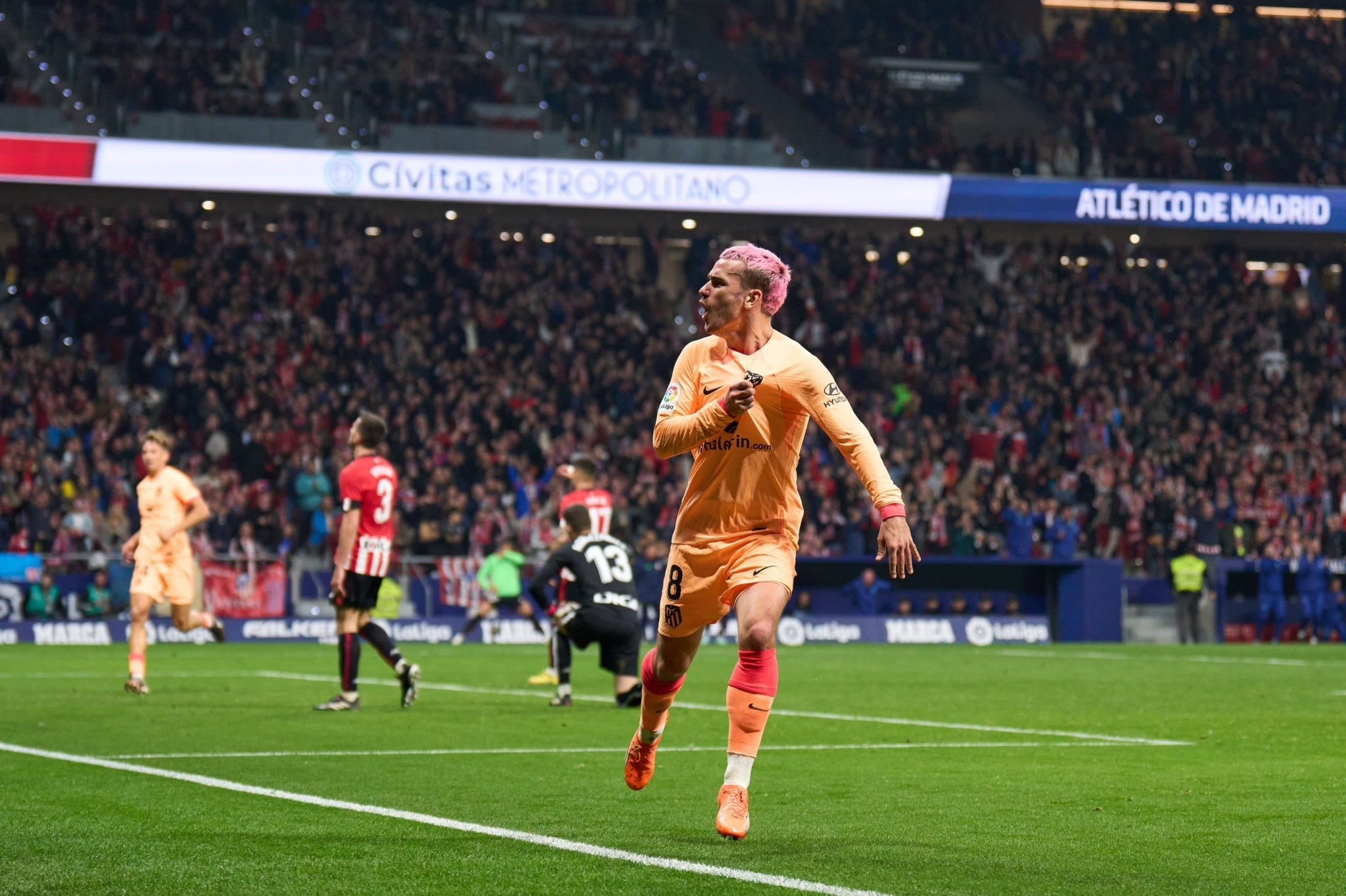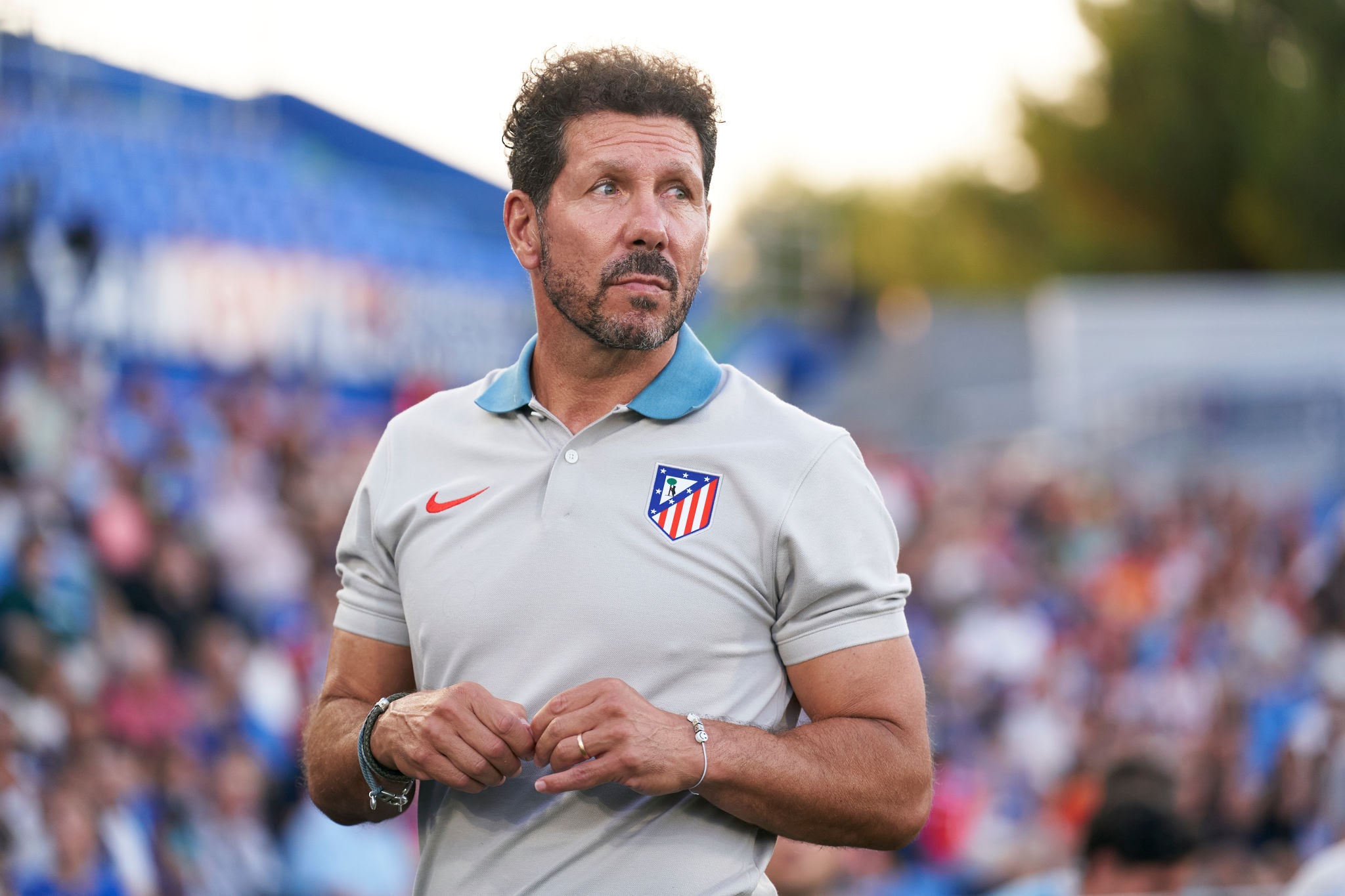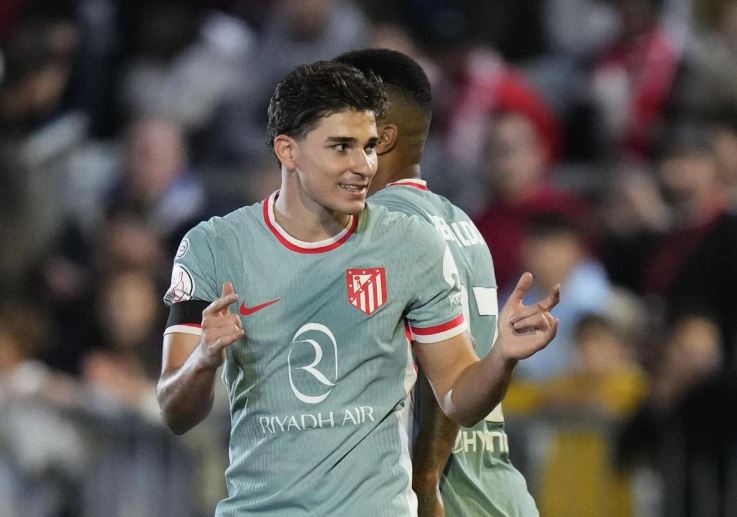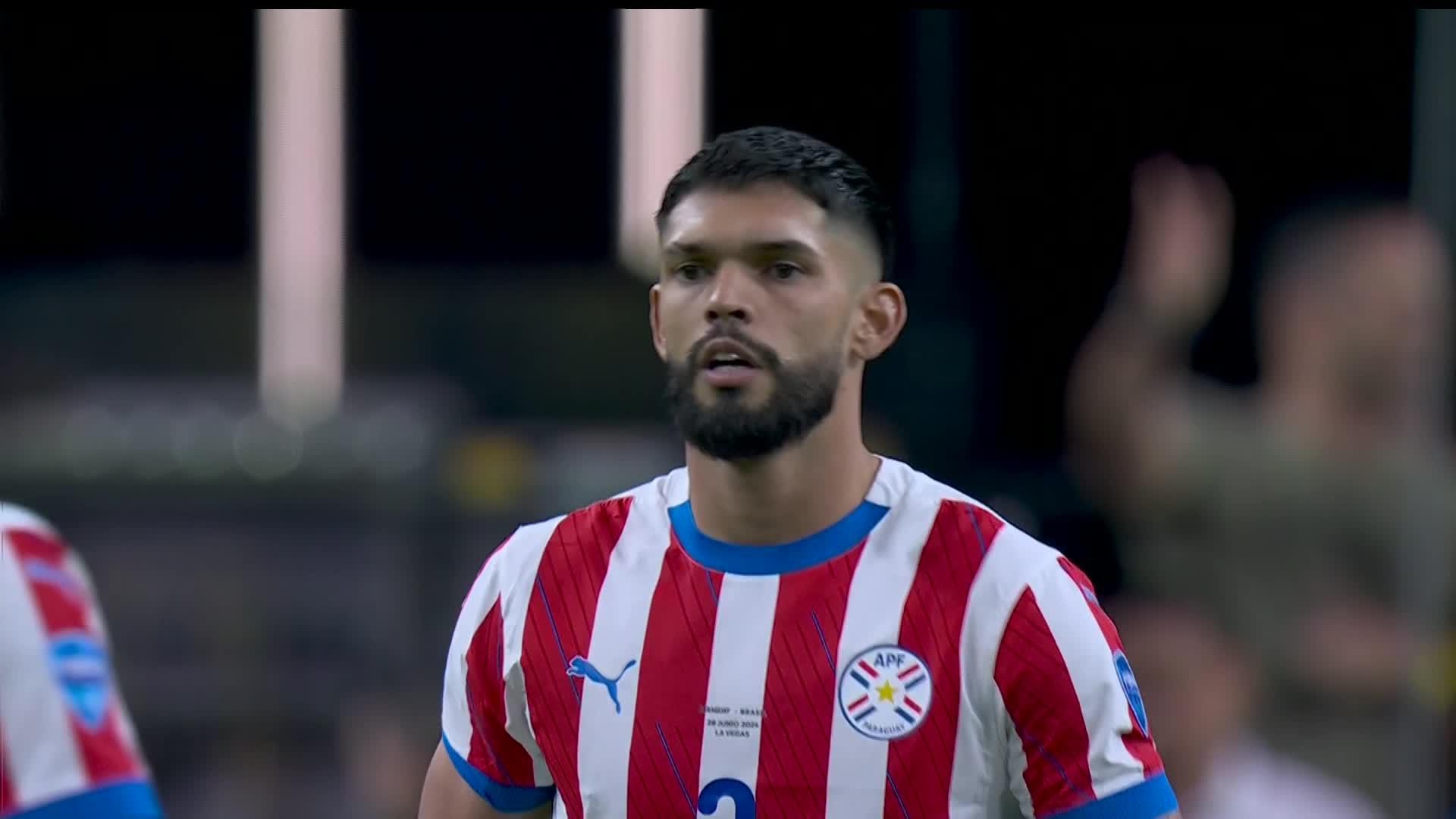From the Civítas Metropolitano
There is one thing everyone can agree on at Atletico Madrid, and it’s Antoine Griezmann – an absolutely absurd statement up until about four months ago. Take into account that for the previous four years there was a persistent element of hostility too, as he swithered between Barcelona and Madrid. “The work and the sacrifice pay,” nodded a stern Griezou at the end of Atleti’s 1-0 win over Athletic Club on Sunday evening, having won the game for his side with a moment of brilliance in a laboured, sluggish second half.
When the Frenchman was brought off in the 90th minute for Saul Niguez, the Metropolitano as one stood and applauded. He clapped his way off too, and the fans roared right back at him. The man who slayed Los Leones had won their approval. It wasn’t quite like that for most of the match.
🗣️ @AntoGriezmann, muy feliz tras la ovación cerrada de la hinchada del @Atleti por su espectacular actuación
"El trabajo y el sacrificio pagan"#LaLigaEnDAZN ⚽ pic.twitter.com/qtqWA9kw4e
— DAZN España (@DAZN_ES) February 19, 2023
Not because of the Frenchman though. Even after his magnificent goal, there was acrimony. Slaloming through the defence on a Messi-esque run, just another trick he has learnt from the Argentine, Griezmann used an opposition player for the one-two when his own wouldn’t do. No sooner had Griezmann finished revving up the crowd like the good gladiator should, than the police were wading in to extract fans due to a fight in the Fondo Sur.
The singing section which don’t sing, except when they are asking for the Gil Marin family (Miguel Angel is CEO) to leave the club. Locked in protest, the Metropolitano is at its noisiest these days when they do raise their voice in manifest disgust, while large swathes of the rest of the stadium whistle and jeer back at the Fondo Sur. Griezmann has even asked for unity.
On the pitch, there isn’t much more cohesion to be spoken of, at least with the ball. Against Athletic, Yannick Carrasco began on the left side of attack, with Angel Correa nominally though the middle and Griezmann playing off him. That attacking combination would change three times throughout the match, as Alvaro Morata, Memphis Depay and Saul all came on in the second half. Before the goal, Atleti tested Julen Agirrezabala just twice; once through a giveaway in Athletic’s third, and again via a hopeful cross, or in Ernesto Valverde’s view, a mistimed Oscar de Marcos header.
Carrasco was arguably the most discreet player on the pitch, yet was responsible for both. In both of their previous matches, he had come on for cameos and shredded the Celta Vigo and Getafe defences with his swerving dribbles. His play was lacking, his confidence too, and most were happy when he was withdrawn. Morata came on and ran hard, but was melancholy again when he missed his customary big chance late on. Memphis played his part in the goal, the Dutchman got the winner last week, and yet, Diego Simeone continues to limit him to not more than twenty minutes of action.
Why did El Cholo start Carrasco for the first time in six weeks? It sort of felt like desperation. Those two runs in consecutive previous weeks were the daring that his attack have lacked for weeks. And it has been weeks that Simeone has been searching for it, with limited success – a 3-0 victory over Real Valladolid and the first half against Real Madrid in the Copa del Rey more or less defining those limits.
Since Christmas, Atletico have played 11 matches, with Simeone altering the combination of attacking players for 10 of those. Save for the three-man give and go at the corner of the opposition box, discerning a pattern of attack is a mental workout. When Correa plays, they come short, when Morata does, they go long. In the fleeting moments of Memphis, Atleti play shorter with more slower, but are more inventive.
The one constant? Griezmann of course. Griezmann has started every game since the World Cup. With seven goals and seven assists, he has been directly responsible for 45% of their La Liga goals, which is Messi-like importance. And that’s despite playing only 72% of the minutes.
Antoine Griezmann was everythwere tonight.
Led Atlético in:
Clearances (5)
Passes in final third (30)
Successful dribbles (5)
Duels (18)
Duels won (12) pic.twitter.com/TlrSOgbMdH— Robbie Dunne (@robbiejdunne) February 19, 2023
As Robbie Dunne highlights, Griezmann was more or less the most successful attacker and defender in red and white against Athletic, although that is doing a little disservice to Reinildo Mandava. Accused of slightly glossing over their defensive style for the purpose of narrative, perhaps he too deserves a place in Griezmann’s chamber of consensus. It would be a stretch to call Atleti solid at the back, nevertheless three clean sheets in their last four suggest a modicum of fight and organisation. Often the confidence to defend well comes after a run of results, which is what Atleti have put together of late.
Returning to the variety of forwards and structures, Simeone’s offensive strategy at times looks not even game-by-game but minute-by-minute, looking for that moment of inspiration, moving things around, trying different combinations. Occasionally it feels as if Simeone is simply moving Griezmann around in each match in order to find the gap he can exploit against this week’s defensive proposition.
Right now it’s working often enough, if you count a top four spot as working. Yet if there was something that used to define Atlético Madrid, something that was Cholo Simeone’s Atleti, then it was the collective. Both as an idea, and a coherent plan, everyone was together. Currently, the division can be felt in the stands, in the boardroom, seemingly even Simeone is split on how he wants his side to attack. But there is one thing the whole Metropolitano can agree on – thank God for Griezmann.




